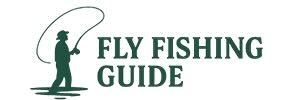Casting Glass: A Fly-Fishing Day in Bariloche’s Nahuel Huapi
Where clear Patagonian waters meet big trout and slow-time river hours
First light on the Limay is a soft, deliberate thing. The river stretches, glassy and unhurried, as if waking in stages. A ring forms where a trout noses the surface, then another. Your guide watches the water like a conversation partner, tracking the current’s hints—riffles that tug, seams that agree to hold, soft edges where shadows mean food. Rivers here don’t just flow; they persuade. In Patagonia, they are old storytellers, and you’re stepping into the narrative midstream.
Trail Wisdom
Read the Seams
Target the transition lines between fast and slow water—trout use these as feeding lanes without burning energy.
Wind Is a Tool
Cast with a low, tight loop and use quartering-downwind presentations to turn over longer leaders in Patagonia’s afternoon gusts.
Polarized Vision
Polarized sunglasses cut glare, helping you spot structure, fish shadows, and your fly on clear water.
Barbless And Legal
Carry your fishing license and use barbless hooks—park rangers conduct spot checks in Nahuel Huapi National Park.
Local Knowledge
Hidden Gems
- •Mirador Bahía López for a quick post-fish sunset lookout on Circuito Chico
- •Short walk to Cascada de los Duendes near Lago Gutiérrez for a quiet waterfall stop
Wildlife
Andean condor, Southern caracara
Conservation Note
Decontaminate waders and gear to prevent invasive algae like didymo; follow catch-and-release rules and barbless-only regulations in the park.
Nahuel Huapi became Argentina’s first national park in 1934, rooted in land donated by explorer Francisco Moreno in 1903.
Seasonal Guide
spring
Best for: Hatches on rivers, Cooler temps and clear water
Challenges: Variable flows, Cold mornings
From November, season opener brings active fish and lighter pressure. Expect crisp mornings and building afternoon winds.
summer
Best for: Dry-fly action, Long daylight hours
Challenges: Strong winds, Midday heat on open steppe
December–February offer steady conditions and big terrestrial bites under willows; plan early starts and late finishes.
fall
Best for: Stable flows, Trophy brown trout movement
Challenges: Cool evenings, Shorter days
March–May is prime for migrating browns and quieter rivers. Pack layers and watch for moody weather shifts.
winter
Best for: Solitude on scenic drives, Snow-capped vistas
Challenges: Most waters closed to fishing, Cold temps and road ice
June–August sees closures on many fisheries; confirm regulations if you plan shoulder-season sightseeing instead of angling.
Photographer's Notes
What to Bring
6-weight Fly Rod with Floating LineEssential
A versatile setup for Patagonia’s mix of dries, nymphs, and small streamers on clear, windy water.
Polarized Sunglasses (Amber/Copper Lens)Essential
Enhances contrast in bright, reflective conditions and protects eyes from errant hooks.
Breathable Waders and Felt/Rubber-Soled BootsEssential
Keeps you warm and stable while wading slick cobbles and cold tailwater runs.
Sun Hoody and Buff
High-UV protection for long days on open water with minimal shade.
Common Questions
Is previous fly-fishing experience required?
No. Your guide provides casting instruction and technique coaching tailored to your skill level.
Are permits or licenses included?
A valid Río Negro/Nahuel Huapi National Park fishing license is required; your guide can help arrange it prior to departure.
What waters do we fish?
Depending on conditions, you may fish the Limay or Manso rivers, or nearby lakes such as Fonck, Hess, or Roca.
Is all equipment provided?
Yes. Rods, reels, flies, leaders, and a private drift boat for 1–2 anglers are included, along with safety gear.
What about food and drinks?
A riverside lunch is provided, typically featuring an asado (with vegetarian option), salads, dessert, and Argentine Malbec.
How long is the day and is hotel pickup included?
Expect 8–10 hours door to door, with hotel pickup and drop-off in Bariloche included.
What to Pack
Lightweight rain shell (Patagonia weather shifts fast); polarized sunglasses (spot fish and protect eyes); sun hoody and buff (UV protection on open water); compact dry bag (keep layers and camera safe in the boat).
Did You Know
The Limay River, flowing out of Lago Nahuel Huapi, is renowned for trophy brown trout that can exceed 10 pounds, drawing anglers from around the world.
Quick Travel Tips
Carry cash for park fees or roadside stops; afternoon winds are common—plan key fishing windows early and late; cell service is spotty near river canyons—download maps; confirm license and barbless regulations before launch.
Local Flavor
Post-river, head to Cervecería Patagonia on Circuito Chico for a lakeside pint and mountain views, or refuel downtown with homemade gelato at Jauja and handcrafted chocolate at Rapa Nui. For a hearty regional dinner, look for trout, lamb, or wild-mushroom dishes paired with a Mendoza Malbec.
Logistics Snapshot
Closest airport: San Carlos de Bariloche (BRC). Typical put-ins are 30–90 minutes from town depending on river/lake. Cell service: limited along canyons—expect dead zones. Permits: Río Negro/Nahuel Huapi fishing license required; barbless hooks and catch-and-release on many waters.
Sustainability Note
Rinse and dry waders, boots, and lines between waters to prevent spreading didymo and other invasives. Pack out all trash, avoid trampling fragile riverbanks, and keep fish wet for quick, low-stress releases.
Continue Reading

Streamside Lessons: A Half-Day Walk & Wade Trout Trip in Cherokee
Learn to read pocket water, cast with purpose, and feel the pull of wild trout on a private, four-hour guided outing in western North Carolina. This half-day walk-and-wade trip is ideal for beginners and seasoned anglers who want concentrated time on some of the region’s best small rivers.
Cherokee, North Carolina

Reading Water in Umbria’s Valnerina: A Guided Day on the Nera and Corno
Follow a local guide into the clear, quick waters of Umbria’s Valnerina, where the Nera and Corno rivers carve a limestone corridor through Italy’s green heart. This is fly fishing with history and flavor—native browns, old railway tunnels, and lunches that belong in a postcard.
Spoleto, Umbria

